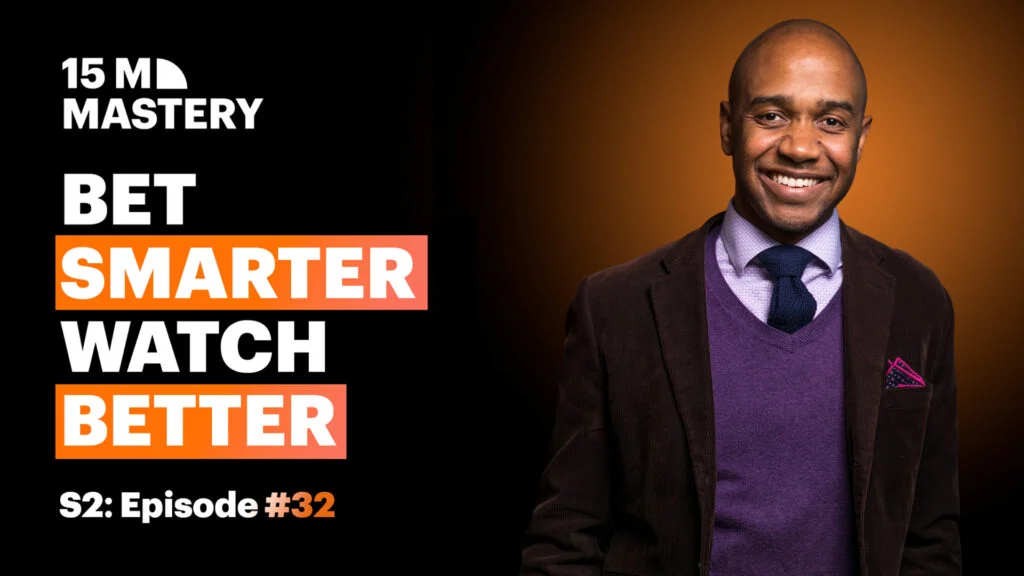Transforming Betting UX: Making Sports Wagering Intuitive for Casual Fans
Simplifying the Odds: Speaking the Bettor’s Language
The current display of betting odds represents a fundamental UX challenge. American-style odds are particularly problematic for newcomers.
“This is my hot topic. The minus one tens and abolishing those is the hill I will die on,” Phillip emphasises. “I need to get a calculator out sometimes to understand what my payout would be.”
Even small changes could dramatically improve accessibility. Converting negative odds to positive formats would help casual bettors understand potential returns without mental gymnastics.
“If we swapped out minus one tens for plus 90s, that’s easy to do the math,” explains Phillip. “For sharps, we understand what the numbers mean. But if we’re ever going to tap into that middle of the bell curve, that’s the type of changes we need.”
Reducing Choice Overload
Drawing from his experience in the automotive industry, Phillip highlights how excessive options can paralyse decision-making. This principle applies directly to sports betting.
“Car manufacturers were priding themselves in how many options they could give their customers. They realised it was overwhelming,” he notes. “The more confident someone feels that they’re making the right decision, the more likely they are to make the purchase.”
For betting platforms, this means fewer options presented more clearly. Thousands of betting markets for a single game only confuse casual users rather than empower them.
“No casual bettor has said, ‘I really want to bet, but there are not enough options,'” Phillip observes.
Psychological Barriers to First-Time Betting
The intimidating experience of traditional sportsbooks creates significant psychological barriers. Phillip identifies fear as the primary obstacle preventing casual fans from placing their first bet.
“When you walk past a sportsbook, it’s not very welcoming. You look up on the board and all you see are numbers,” he explains. “You’re walking up to this desk and you have people standing behind it in uniform. It feels like you’re going to a bank.”
Phillip suggests more approachable entry points for newcomers:
- Simple binary choices tied to popular athletes
- QR codes that allow users to engage without complex interactions
- Social media content that connects sports to pop culture
- Player-centric approaches that leverage existing fandom
Reimagining the Betting Experience
Phillip believes the betting experience should begin with what makes sports compelling, rivalries, tribalism, and emotional investment, rather than odds and markets.
“My team’s going to win, my player is going to win, my school is going to win the championship. I think it’s the crux of it,” he says.
He admires what fantasy sports platforms like PrizePicks and Underdog Fantasy have accomplished with their interfaces, expressing surprise that major sportsbooks haven’t followed suit.
“What I don’t get is the big regulated players, why there’s a line of demarcation in their UX when we look at what PrizePicks and Underdog is doing and what their brands are doing,” Phillip wonders.
The ideal approach would maintain regulatory compliance while adopting the accessibility of fantasy sports platforms.
“Speak in English, speak in memes, speak in small player performances, and not give someone this library of different bets,” he advises.
Beyond Acquisition: Retention Through Personalisation
Many sportsbooks focus exclusively on acquisition while neglecting retention. Phillip argues that effective retention requires recognising the complex nature of fandom.
“My fandom isn’t binary. I adore the Yankees, the Golden State Warriors I enjoy, but it’s very, very different,” he explains.
Instead of treating users as static entities, betting platforms should evolve with them, identifying their unique “fingerprint of fandom” and engaging them at the right moments.
“The way to keep that flywheel moving is to say, ‘Hey, you haven’t bet in a while, here’s a deep link directly to see Lionel Messi play in the CONCACAF Champions League tomorrow night,'” Phillip illustrates.
This concierge-like approach, notifying users about exciting events without always including betting prompts, builds trust and engagement that naturally leads to wagering opportunities.


